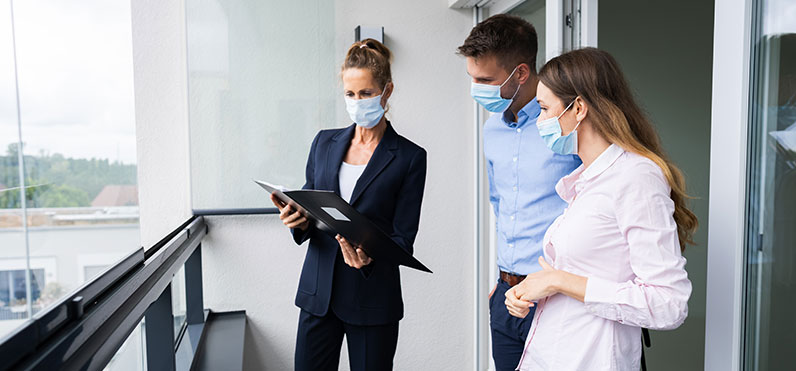Aug 27,2021
Q. Does the City of Boston indoor mask mandate mean my association must require residents to wear masks in the indoor common areas?
Boston’s indoor mask mandate only applies to buildings that are open to the public. Most associations are private, are not open to the public, do not hold events open to the public, and therefore would not be included within this order. If, however, your association does have a club house or other amenity space that hosts functions open to the public, or which can be rented by the public, the mask mandate would apply to that space.
The decision whether you can and should vaccinate is often highly specific to the business and to the employee’s job function and interaction with other staff and/or the public
Please note over a dozen cities and towns have also recently issued indoor mask mandates and those mandates may define indoor spaces more broadly to include residential buildings. Associations outside of Boston should check the specific language of any local ordinance to determine if it applies.
Finally, while association common areas may not be subject to the Boston mandate or another local mandate, the same health concerns may nonetheless be applicable and persuasive for associations to require or encourage residents to mask up in their common areas, particularly in tight spaces such as elevators, common restrooms, and gyms.
Q. What other measures to protect the common areas should we continue to explore as the spread of COVID-19 remains high?
It remains important to invest in proper maintenance and upkeep of your building’s ventilation system. This means ensuring that the heating, ventilation and air conditioning (HVAC) systems operate properly, installing new or upgraded air filters, maximizing natural ventilation, and potentially using portable air purifiers in high occupancy/limited ventilation spaces. Associations should also continue to perform appropriate cleaning and sanitization measures.
Q. Can associations require vendors be vaccinated? Should they?
You may be able to require vendors to provide proof of vaccination. You could include this requirement in future vendor agreements or work with current vendors to amend present agreements to include a vaccination requirement. If the vendor is already under contract and not amenable to an agreement on vaccinations, associations may not be able to compel them to do so. If a current vendor is not amenable, and the vendor agreement cannot be amended, there may be measures short of a complete vaccination requirement that can still be achieved, including accepting regular testing, enhanced PPE use, or other measures to limit the spread of COVID-19.
Whether an association should pursue a vaccination requirement may well be fact-dependent on the type of service provided and level of resident interaction. A vaccination requirement might have limited utility for landscaping and snow removal vendors who work primarily outdoors versus vendors who will frequently interact with residents and need to enter their units.
Q. Can an association require employees to be vaccinated? Should it?
In many circumstances, private employers can legally mandate that employees entering the workplace be vaccinated, subject to providing reasonable accommodations for those with disabilities and those who object based on sincerely held religious beliefs.
Even before the FDA fully approved the Pfizer vaccine last week, the EEOC, DOJ, and recent court opinions have all signaled that a vaccine mandate passes muster under federal law and, at the state level, such mandates have received support from the governor and attorney general.
Notably:
• Last December, the EEOC issued guidance that gave support for employers to institute employee vaccination mandates.
• In June, a U.S. District Court in Texas dismissed a wrongful termination lawsuit brought by more than 100 nurses and other hospital employees, holding that a mandatory vaccination policy was consistent with public policy.
• In July, the Department of Justice issued a memorandum of opinion that the fact that the vaccines then only had emergency use authorization did not prohibit a vaccine mandate.
• In August, the Seventh Circuit Court of Appeals denied an injunction that would have prohibited a university from enforcing its vaccine mandate.
• In August, Governor Baker announced a form of vaccine mandate for state employees and the Massachusetts Attorney General stated that she imposed a similar mandate for her staff and believes them to be lawful.
There remains some – albeit, low – risk that a mandate could face legal scrutiny as some of the decisions are on appeal. The list of vaccination mandates by governments, employers, and universities continues to grow. Significantly, though, there are practical and operational considerations with implementing a vaccine mandate that remain and should be considered:
• How will your employees view the mandate? How will your customers/business partners view a mandate?
• How will you enforce the mandate?
• How will you process accommodation requests?
• Who will be responsible for record keeping?
• Will you offer incentives?
• Should you provide an alternative that the employee receives regular COVID-19 testing?
The decision whether you can and should vaccinate is often highly specific to the business and to the employee’s job function and interaction with other staff and/or the public.
As we are all too aware at this point, the COVID-19 pandemic and the guidance, laws and advisories which concern it, are constantly changing. To ensure that you have the most up to date information and guidance about your responsibility as an association or employer, contact us.


